These children’s books teach young boys and girls to see their private parts without malice
Kiddie reads Ako Ay May Titi by Genaro Gojo Cruz and Ako Ay May Kiki by Glenda Oris made the rounds online for their controversial topic: children's genitals. Published by Lampara Books for children five years old and up, the books highlight the importance of taking care of their private parts and seeing them without malice.
In a HuffPost article, sex educator Melissa Carnagey weighed in on the delicate discussion, saying doing so helps them pinpoint a painful or itchy body part, improves their hygiene, and “prepares them to talk confidently about changes they may experience with their body as they grow.”
Additionally, the report states it can also help them communicate “if they’ve been touched inappropriately.”
Those were exactly what Cruz, who has written over 80 books, had in mind when he was writing Ako Ay May Titi. While it took him a while to muster up the courage to tackle this controversial topic, he made it a point to challenge himself to do so as he found it necessary.
“May topic sa Kinder tungkol sa mga bahagi ng katawan. Naisip ko, baka nilalaktawan ng mga guro ang tungkol sa titi kasi ‘di nila alam kung paano ito tatalakayin sa mga bata,” he told PhilSTAR L!FE. “At saka tumataas ang bilang ng mga batang naa-abuso sa loob ng bahay. Sa pagtuturo ng bahagi ng katawan, ng functions nito, sa paggamit ng mga tamang salita, nabibigyan natin ng weapon ang bata na magsalita o ipagtanggol ang kanilang sarili.”
According to CAMELEON, an international organization that aims to raise awareness and act on sexual violence towards children and teenagers, about seven million Filipino children experience sexual abuse every year. Seventy percent of them are between 10 and 18 years old, while 20% of them are below six years old.
With an incest rate of 33% of the abuses, the report explained that kids’ vulnerability may be linked to various factors like “poverty, the influence of alcohol or drugs, gender-based inequalities, the way parents consider their children (they are considered “owned,” not free, and cannot have opinions or rights), and the lack of education (and especially of sex education).”
“As for the young victims,” they added, “the lack of general education and especially of sex education is mentioned as the reason why two children out of three do not report the crime: they do not realize that they are being raped.”
Knowing that this is quite a sensitive concern, Cruz wrote it back in 2017 and posted it on Facebook for parents to share their thoughts. After a while, he edited it based on their comments and submitted the first draft to a local publishing company.
“I'm very thankful to Lampara Books kasi nagsugal sila sa aklat-pambata na ‘di namin sigurado kung tatanggapin ng market. Lumabas ito noong November 2019. Tahimik lang. Hanggang sa dumating ang August 2020. Pati ako ay ‘di makapaniwala sa naging pagtanggap ng mga tao sa Ako ay May Titi.” It’s now on its third printing run since its launch.
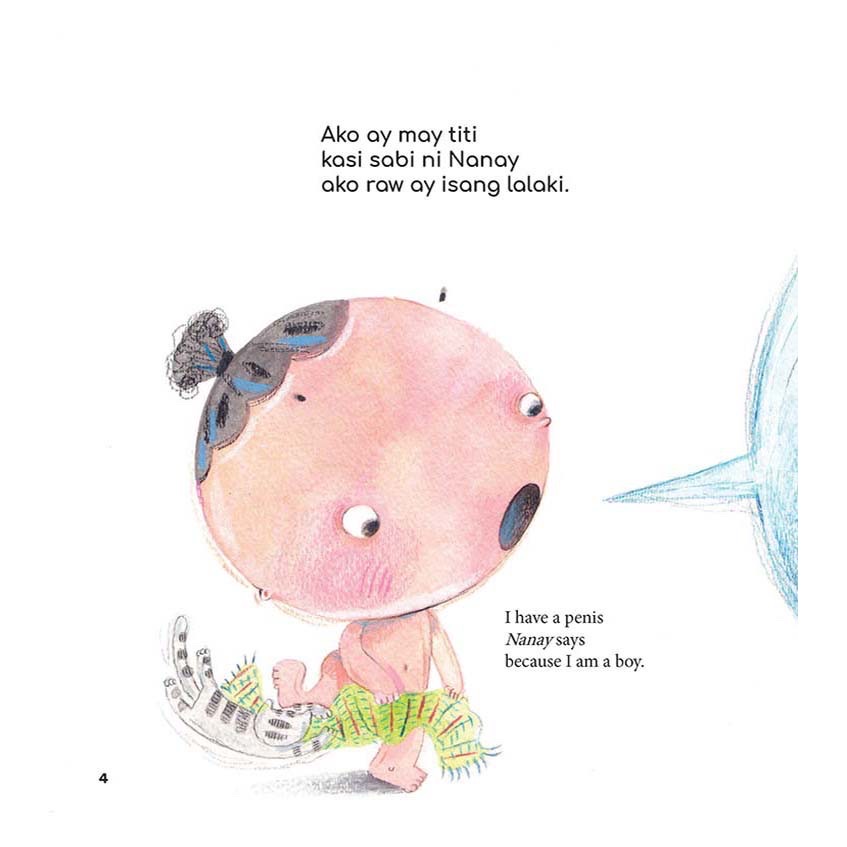
There are parents who are interested in reading the same book to their sons. Mommy Mika Alcause, for one, shared that as soon as her son Leon started to understand them as parents, they decided to talk to him about his genitals. “Then, tinuturuan and pinapaintindi ko ito sa kanya now that we’re potty training. Dad niya lang din nagwawash sa kanya because they both have a penis, so he’ll know na it’s not normal na hawakan ‘yun ng iba.”
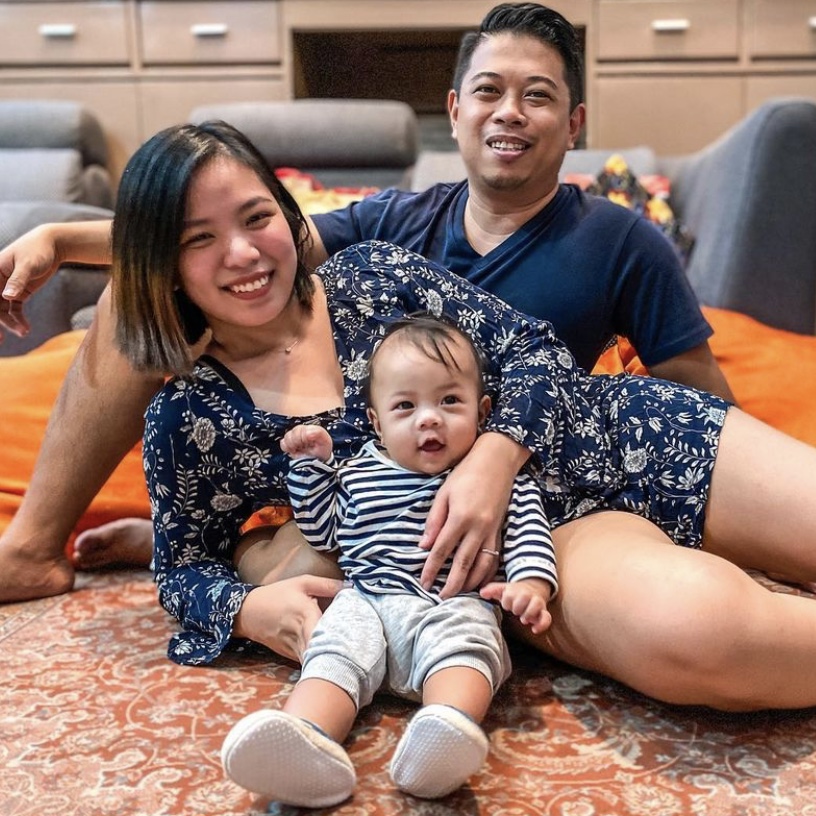
Ara Idanan, who is a mom to her lovely son Kyler, will “definitely teach him the right words for his genitals” when the time comes. “I’ve read a lot of crazy stories about kids talking about their genitals being touched by people or even family members in the wrong way and sharing it to their teachers,” she explained, adding that kids are very smart, hence, they may be able to absorb it if it’s discussed properly. “It shouldn’t be awkward or hard to share with them. May mga nagbibigay lang talaga ng malisya sa mga ganyang bagay.”
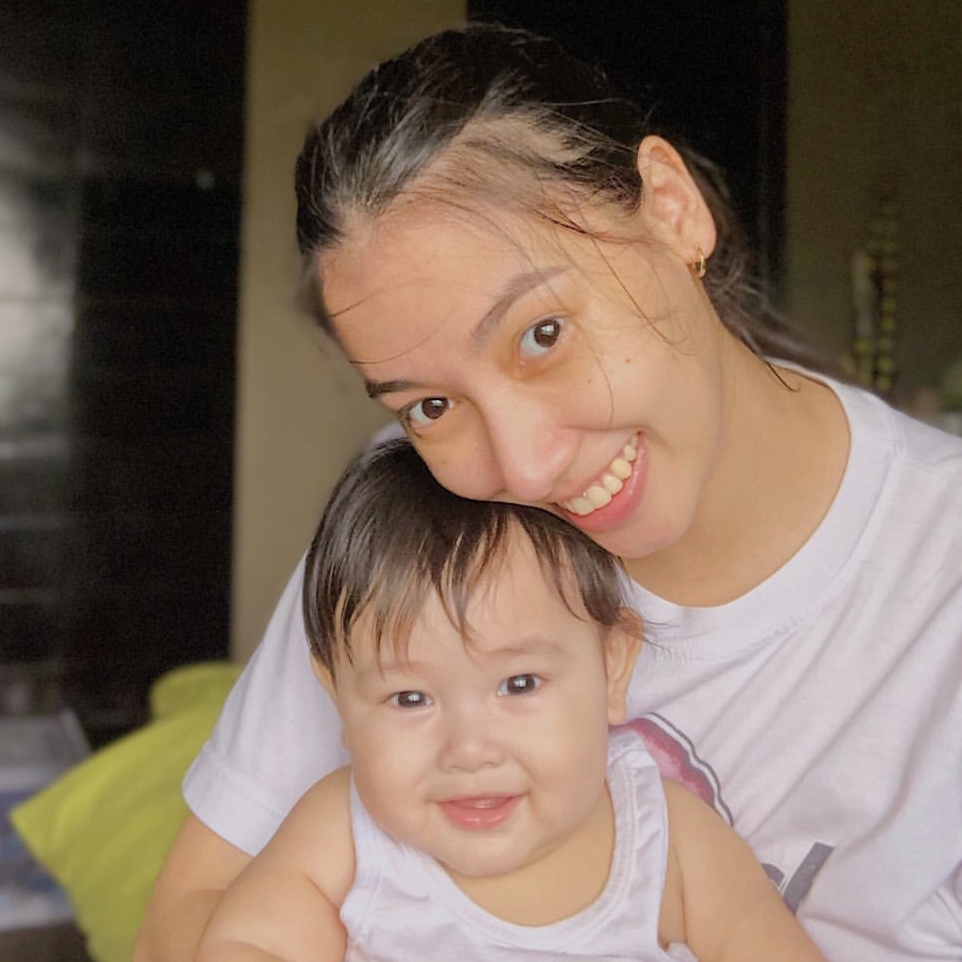
Just recently, the second installment of Ako Ay May Kiki was released by Lampara Books. “Habang bata, tulungan nating kilalanin ng ating mga anak ang kanilang mga sarili. Hindi sa pagdidikta kung ano ang magiging sila, kundi sa pagpapaalam kung ano ang meron sila. Kasama dito ang mga bahagi ng kanilang katawan na dapat nilang alagaan, pahalagahan at ingatan,” they wrote in a Facebook post.
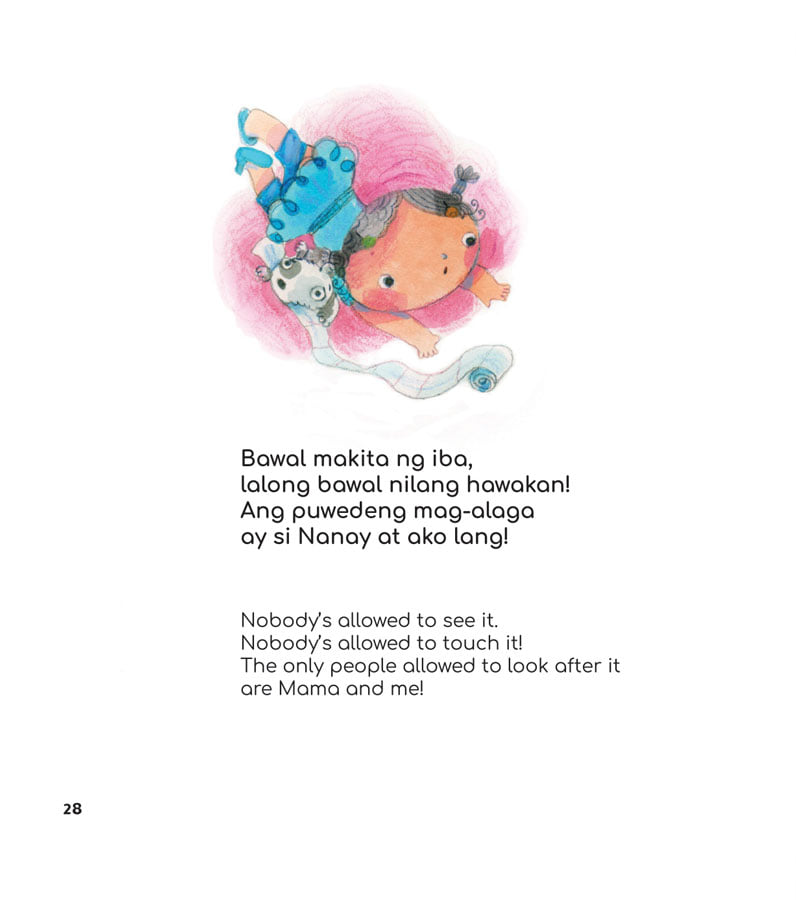
Mom Sophia Nietes expressed her willingness to read it to her daughter Izzy, as the latter has learned about her private parts even at a young age. This is because she believes it’s necessary and it can be done in a way that is appropriate to children’s age and understanding. “Being open to conversations and using the appropriate terms sends the message to kids that it is nothing shameful and completely natural,” she said. “When children know and are comfortable about using the appropriate terms for their body parts and their functions, they are more autonomous with their own body and would be more comfortable to disclose sensitive topics with a parent whom they know is open minded to discuss topics as such.”
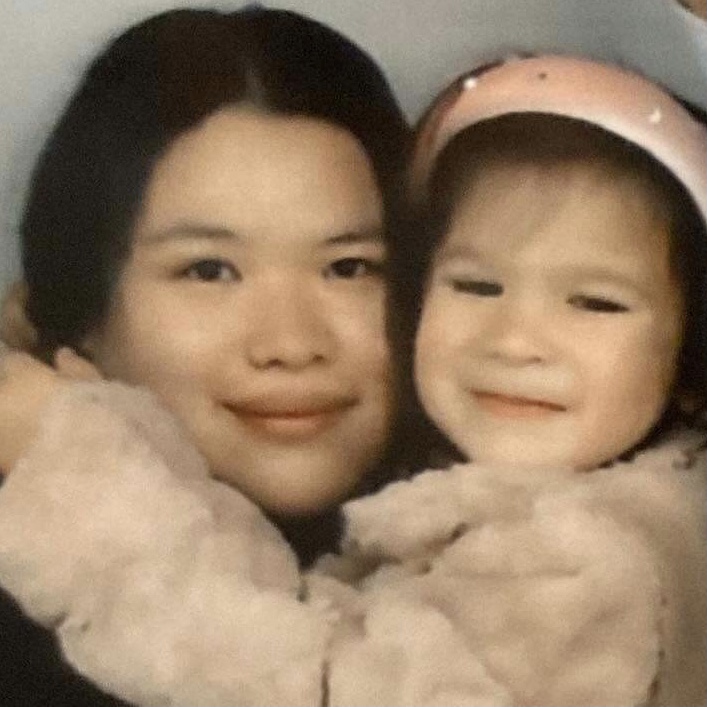
Parent Teddy Salonga, meanwhile, believes it would be best to read the book to her daughter when she reaches seven years old and not as early as five. “I think it would only be beneficial at some point when she’s more aware of what’s happening in her surroundings,” she mused.
While it has been well-received by most netizens, others still found it “inappropriate” and “vulgar.
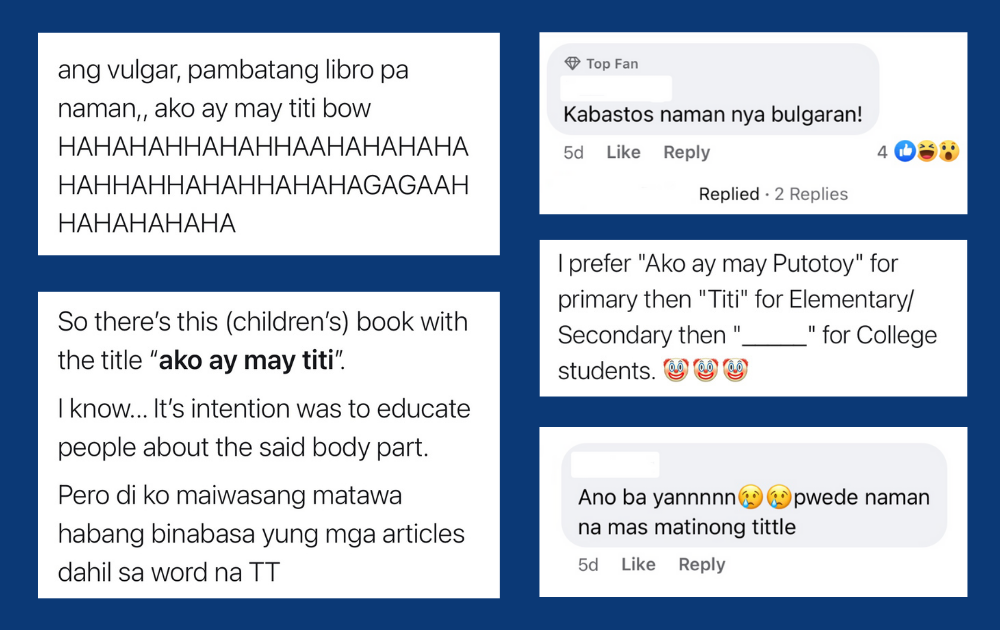
However, Cruz stands firm in his belief that it’s about time that we put this discussion to the forefront and teach kids to get rid of malice when it comes to their private parts. “Kailangang kompletuhin ang mga paksa na mahalaga para sa mga batang Filipino upang maging kompleto ang kanilang kaalaman at karanasan bilang bata. Maraming puwedeng gamutin na problema ng lipunan sa paglalathala ng mga aklat-pambata. Mahalaga ang gampanin ng magulang sa pagpapakilala ng mga aklat—pambatang lokal sa kanilang mga anak,” he concluded.
Article thumbnails from Lampara Books


